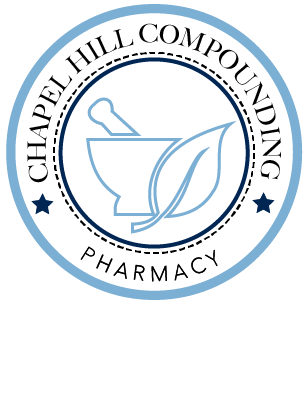About Compounding
Compounding is the Art and Science of Creating Personalized Medications
Pharmacy compounding is the art and science of preparing personalized medications for patients. Compounded medications are “made from scratch” – individual ingredients are mixed together in the exact strength and dosage form required by the patient. This method allows the compounding pharmacist to work with the patient and the prescriber to customize a medication to meet the patient’s specific needs.
A Brief History of Compounding
At one time, nearly all prescriptions were compounded. With the advent of mass drug manufacturing in the 1950s and ‘60s, compounding rapidly declined. The pharmacist’s role as a preparer of medications quickly changed to that of a dispenser of manufactured dosage forms, and most pharmacists no longer were trained to compound medications. However, the “one-size-fits-all” nature of many mass-produced medications meant that some patients’ needs were not being met.
Innovative Compounding Technology & Techniques Meet Patient Needs
Fortunately, compounding has experienced a resurgence as modern technology and innovative techniques and research have allowed more pharmacists to customize medications to meet specific patient needs.
Trained, PCCA member pharmacists can now personalize medicine for patients who need specific:
Strengths
Dosage forms
Flavors (see below)
Ingredients excluded from medications due to allergies or other sensitivities
Do Compounded Medications Require FDA Approval?
The FDA approval process is intended for mass-produced drugs made by large manufacturers. Because compounded medications are personalized for individual patients, it is not possible for each formulation to go through the FDA’s drug approval process, which takes years to complete and is prohibitively expensive, often costing hundreds of millions of dollars.
However, every compounding pharmacy must comply with the regulations set by the State Board of Pharmacy of the state in which the pharmacy is located. Each State Board of Pharmacy has the power to set and enforce regulations for compounding in its state, just as traditional pharmacies are regulated. The ingredients used by compounding pharmacies to make compounds come from FDA-registered and inspected facilities.
Flavors Available
*Please note that not all flavors are available for all formulas
Humans:
Banana Cream
Bubble Gum
Creme De Menthe
Cotton Candy
Grape
Marshmallow
Orange Cream
Peanut Butter
Raspberry
Tutti-Frutti
Vanilla
Watermelon
Pets:
Bacon
Beef
Chicken
Maple Syrup
Fish
Liver
Triple Fish
Benefits of Compounding
Have you or a loved one ever had difficulty taking medication?
You’re not alone. Many people experience issues such as these:
Stomach upset when taking oral medication
Reluctance to take the medication due to its taste
Difficulty swallowing pills
Requiring a different dose of medication than that which is available from a manufacturer
Patients who don’t want to take medication at all, especially children or pets
A compounding pharmacist may be able to provide solutions for challenges such as these. Working closely with the patient and the prescriber, compounding gives the pharmacist the means to customize medication to meet the individual needs of each patient.
Compounding Pharmacists Make Medication That is Difficult to Find or Discontinued
Sometimes a large pharmaceutical manufacturer discontinues a medication. Often this happens because not enough patients are taking the drug, so it is unprofitable to keep mass-producing it. But what about the patients who still need that drug? Hundreds or even thousands of patients still may need that medication.
A compounding pharmacist can re-create that medication by compounding it, so even if only one person in the world still needs that medication, they can have it thanks to compounding!
Compounding Pharmacists Make Medication Allergy-Friendly
A patient may be allergic to or intolerant of an ingredient commonly found in the commercially manufactured form of a medication.
Ingredients that may be allergy-inducing include:
Lactose
Preservatives
Dyes
Gluten
Sugar
A compounding pharmacist can create a personalized medication, formulated to give the patient the treatment they need while leaving out the problematic ingredient.
Compounding Pharmacists Make Medication Easier to Use
Some medications have a very unpleasant flavor, which makes the patient less likely to take it as directed. A compounding pharmacist can flavor many medications to make it more palatable without compromising the medication’s effectiveness. This is especially handy when dealing with medications for patients who may refuse medication, such as young children, elderly patients, or even pets!
A patient may need their medication in a different dosage form. For instance, patients who have difficulty swallowing a pill may find it easier to take their medication in a pleasantly flavored liquid form. Some medications can be compounded in a topical form such as a cream or a gel that allows the medicine to be absorbed into the bloodstream through the skin.
See our Alternative Medication Forms.

